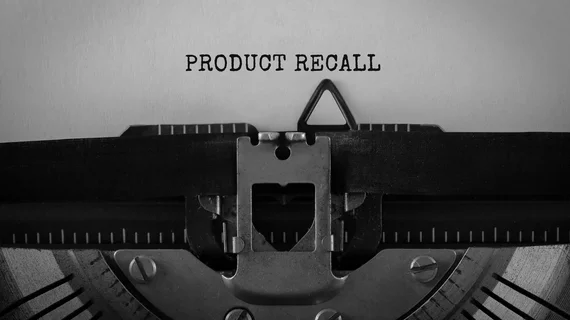FDA announces recall of 95,000 directional atherectomy systems after 55 injuries
The FDA has announced that Medtronic is recalling its HawkOne Directional Atherectomy System, an interventional solution designed to remove blockages from a patient’s peripheral arteries. The recall is due to issues with the catheter’s guidewire moving or prolapsing during use.
“If this happens, the catheter tip may break off or separate and this could lead to serious adverse events, including a tear along the inside wall of an artery (arterial dissection), a rupture or breakage of an artery (arterial rupture), decrease in blood flow to a part of the body because of a blocked artery (ischemia), and/or blood vessel complications that could require surgical repair and additional procedures to capture and remove the detached and/or migrated (embolized) tip,” according to the FDA advisory.
This is a Class I recall, meaning the use of this device “may cause serious injuries or death.” A total of 163 complaints have been received so far about this issue, and 55 injuries have been reported. No deaths have been reported at this time.
A total of 95,110 systems are included in the recall. The devices were distributed to customers from January 2018 to October 2021.
One key difference between this and other recalls is that Medtronic is not retrieving impacted devices. The possibility of prolapse is already specifically emphasized in the device's warning information, but the company did wish to issue a recall to highlight the seriousness of the issue.
"The purpose of this recall is to reiterate existing warnings and precautions in the HawkOne Instructions for Use related to the risk associated with tip damage caused by guidewire prolapse," according to a statement from Medtronic.
The company also emphasized that patients do not need to take any actions due to this recall.
Click here for more information from the FDA, including contact information for Medtronic’s support team.

